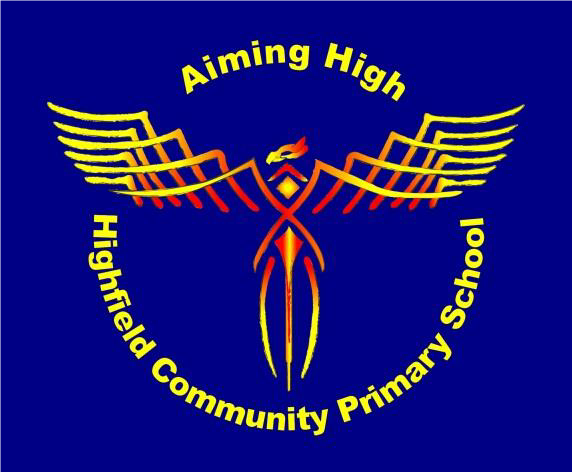Maths
Intent
The intent of our mathematics curriculum is to provide children with a foundation for understanding number, reasoning, thinking logically and problem solving with a strong focus on resilience so that they are fully prepared for the future. It is essential that these keystones of Mathematics are embedded throughout all strands of the National Curriculum.
By adopting a Mastery approach, it is also intended that all children, regardless of their starting point, will maximise their academic achievement. They will leave Highfield Community Primary School with an appreciation and enthusiasm for Maths, resulting in a lifelong positive relationship with number and an ability to problem solve.
- We ensure that we deliver a high-quality maths curriculum that is both challenging and enjoyable.
-
We want children to make rich connections across mathematical ideas to develop fluency, mathematical reasoning and competence in solving increasingly sophisticated problems.
-
We intend for our pupils to be able to apply their mathematical knowledge to other subjects when appropriate.
-
We want them to know that maths is essential to everyday life and that our children are confident mathematicians who are not afraid to take risks.
-
Fully develop independent learners with inquisitive minds who have secure mathematical foundations and an interest in self-improvement.
Implementation
Our implementation is developed through secure understanding of the curriculum and the different subject areas.
Teaching and Learning, Content and Sequence
-
For maths, our long-term planning follows the National Curriculum 2014. https://www.gov.uk/government Weekly and daily lessons follow the White Rose Maths Hub which is combined with the school calculation policy.
-
By using a variety of planning resources we believe that we provide a bespoke teaching and learning experience that is designed to interest, inform and inspire our children.
-
By using the children’s prior knowledge as a foundation for all future planning and teaching we ensure lessons are planned appropriately to maximise progress.
-
Lessons are engaging and follow a cycle of planning, to ensure that we can evidence progress over short and long periods of time.
-
Maths lessons are designed with a concrete, pictorial and abstract (CPA) approach, providing our pupils with the scaffolding required to access the learning at all levels.
-
We place a large emphasis on pupil engagement and design lessons which involve all pupils using questioning and modelling at the centre of every lesson.
-
To implement our intent, we ensure that our children are invested in their learning and are making a positive contribution to their lessons.
Impact
A mathematical concept or skill has been mastered when a child can show it in multiple ways, using the mathematical language to explain their ideas, and can independently apply the concept to new problems in unfamiliar situations.
We use both formative and summative assessment information every day, in every lesson. Staff use this information to inform their short-term planning and short-term interventions. This helps us provide the best possible support for all of our pupils, including the more able.
Our staff use formative assessment grids to systematically assess what the children know as the topic progresses and inform their future planning. These formative assessment grids then inform summative assessment judgements
Assessment information is analysed by the Subject Lead and the Headteacher as part of our monitoring cycle. Pupil progress reviews are conducted half termly (formative) and termly (summative). This process provides the SLT and Governors with an accurate and comprehensive understanding of the quality of education in our school.
We set out our monitoring cycle at the beginning of each academic year. This identifies when monitoring for all year groups is undertaken in all subject areas. Monitoring includes: book scrutinies, lesson observations and/or learning walks, pupil/parent and/or staff voice alongside meetings with the governor appointed to Maths.
All of this information is gathered and reviewed. It is used to inform further curriculum developments and provision is adapted accordingly.
